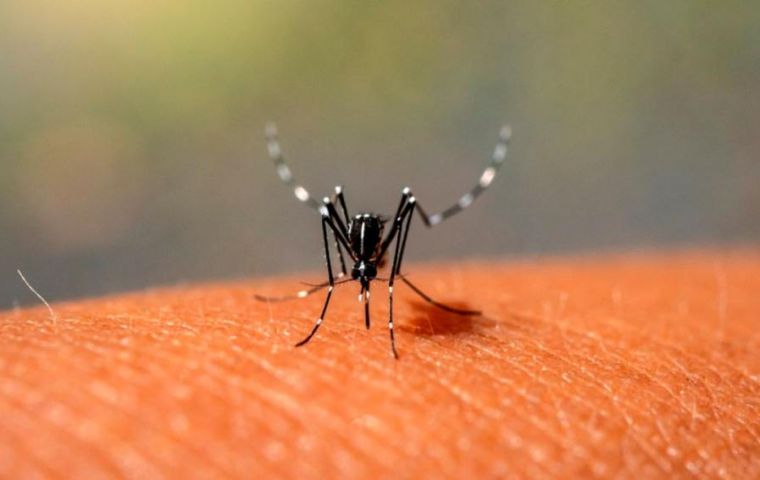
WASHINGTON, March 30 (NNN-MERCOPRESS) — According to the Pan American Health Organization (PAHO), Latin America is looking ahead at the worst dengue season in history, mainly due to the global increase in temperatures and extreme weather. The worst scenario is likely to occur in Brazil, Argentina, and Paraguay.
“Last year there were 4.5 million cases and so far this year we already have 3.5 million, so this will probably be the worst dengue season in the Americas and that is why it is very important that countries that are experiencing an increase in transmission double efforts to prevent the spread,” said PAHO director Jarbas Barbosa in a virtual press conference Thursday.
The Americas have recorded more than 3.5 million cases of dengue and more than 1,000 deaths by March 16, he noted. “This is a cause for concern as it represents 3 times more cases than those reported for this same date in 2023, a record year, with more than 4.5 million cases reported in the region,” Barbosa explained.
The increase in cases is occurring “in all countries of Latin America and the Caribbean,” although Brazil, Paraguay, and Argentina account for 92% of all cases and 87% of deaths.
Dengue, which is transmitted by the bite of a mosquito, “follows a seasonal pattern” and at the moment the region is going through the warmest and rainiest season, he explained.
In other countries such as Barbados, Costa Rica, Guadeloupe, Guatemala, Martinique, and Mexico transmission is usually high in the second half of the year.
“We are also detecting the presence of the mosquito in geographic areas where endemic transmission had not previously been observed, which means that some countries may not be prepared to deal with an increase in transmission,” Barbosa warned.
The physician also explained that “environmental causes”, especially “the increase in temperatures and the greater frequency of extreme climatic phenomena such as heat waves or intense droughts” were behind the surge in cases because these events “lead the population to store water inadequately,” concurrently with other events that favor the proliferation of the Aedes aegypti mosquito.
Barbosa called on all countries to support prevention efforts and intensify the elimination of breeding sites as vaccines are still in very early stages and advised health authorities to prepare for early diagnosis and timely clinical management of dengue patients.
Regarding vaccines, PAHO’s expert Daniel Salas explained that “it would take many years for them to work to prevent transmission” and, in addition, “there is currently very limited production,” so prevention and awareness were essential. — NNN-MERCOPRESS






